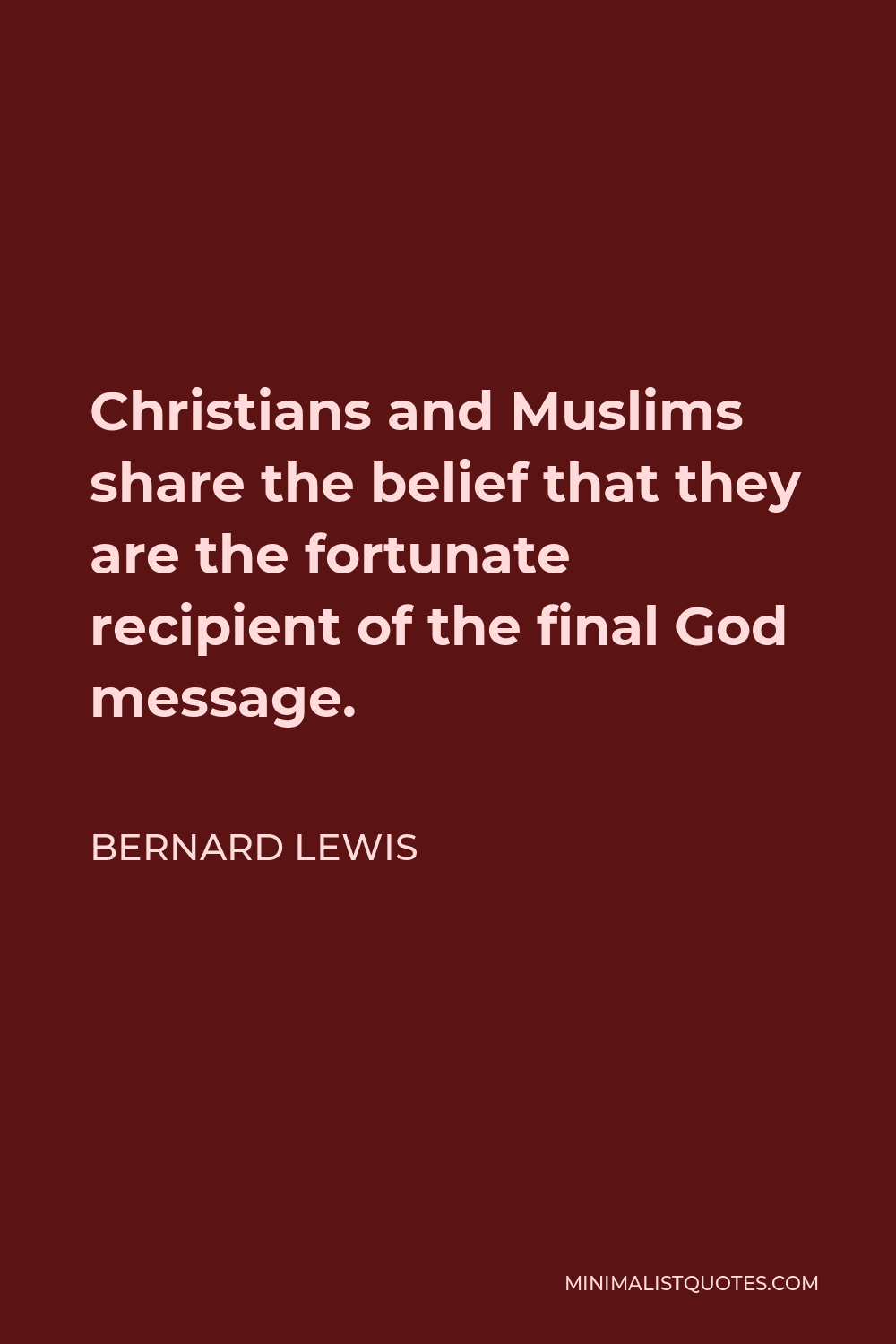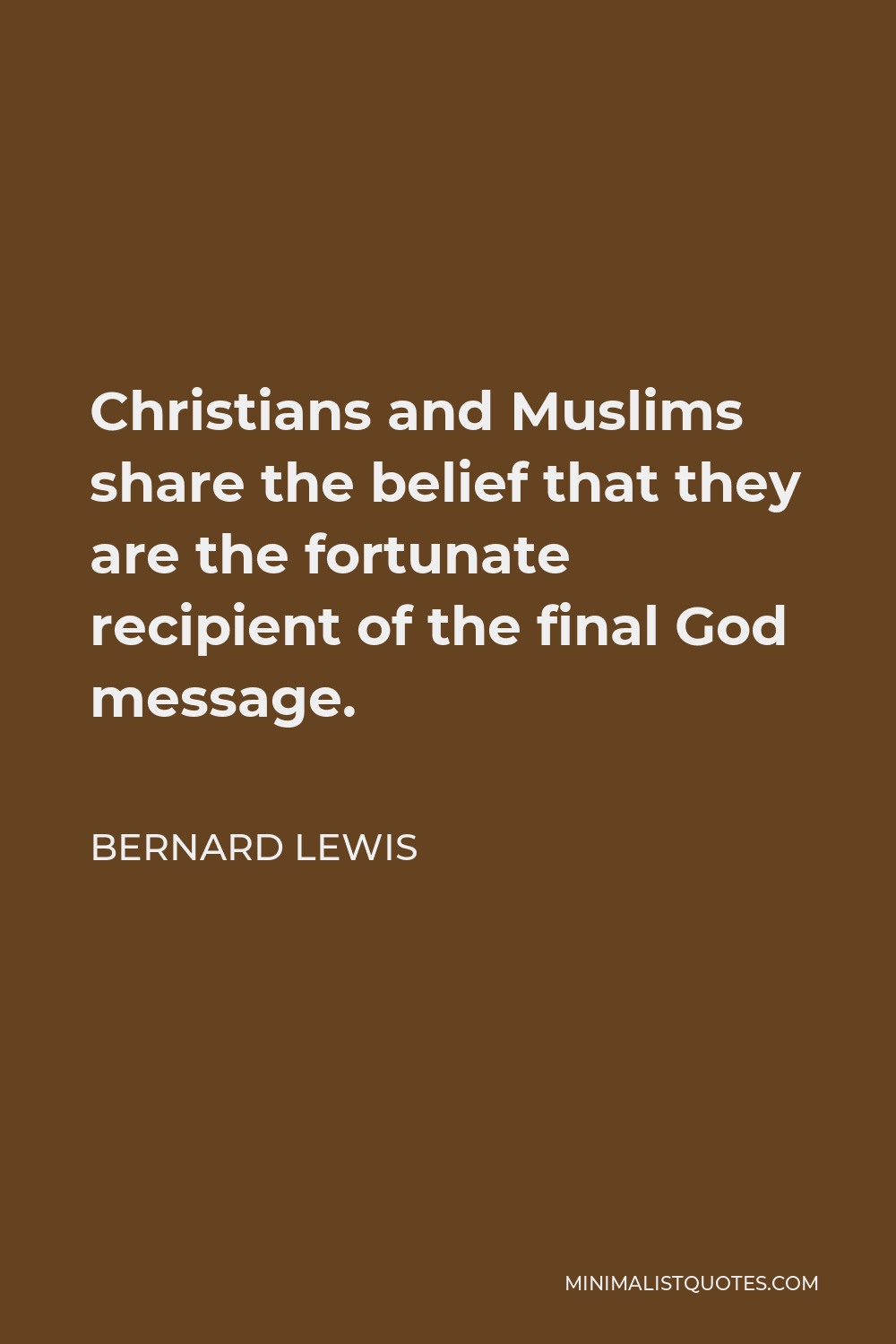Christians and Muslims share the belief that they are the fortunate recipient of the final God message.
BERNARD LEWISChristians and Muslims share the belief that they are the fortunate recipient of the final God message.
More Bernard Lewis Quotes
-





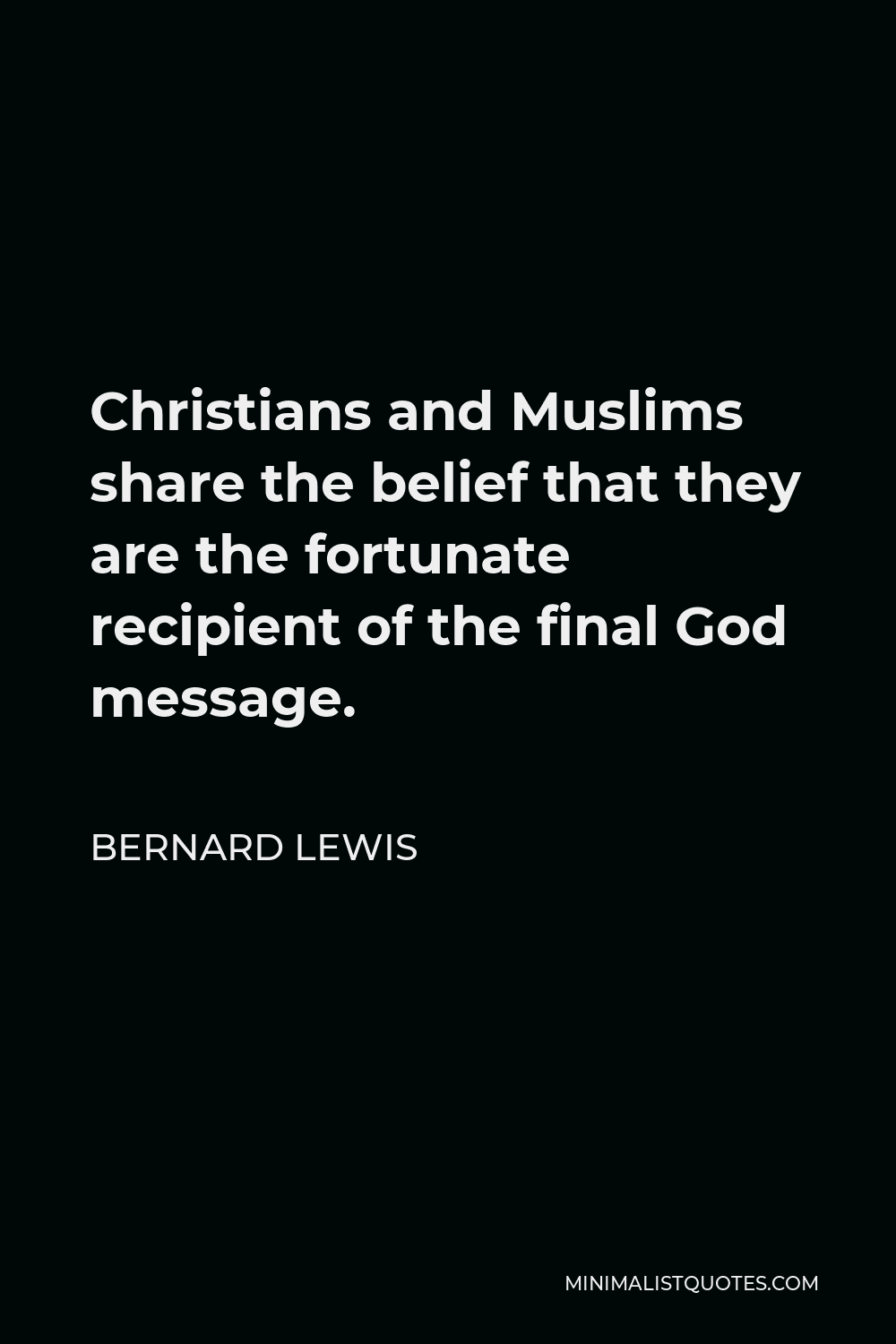
-





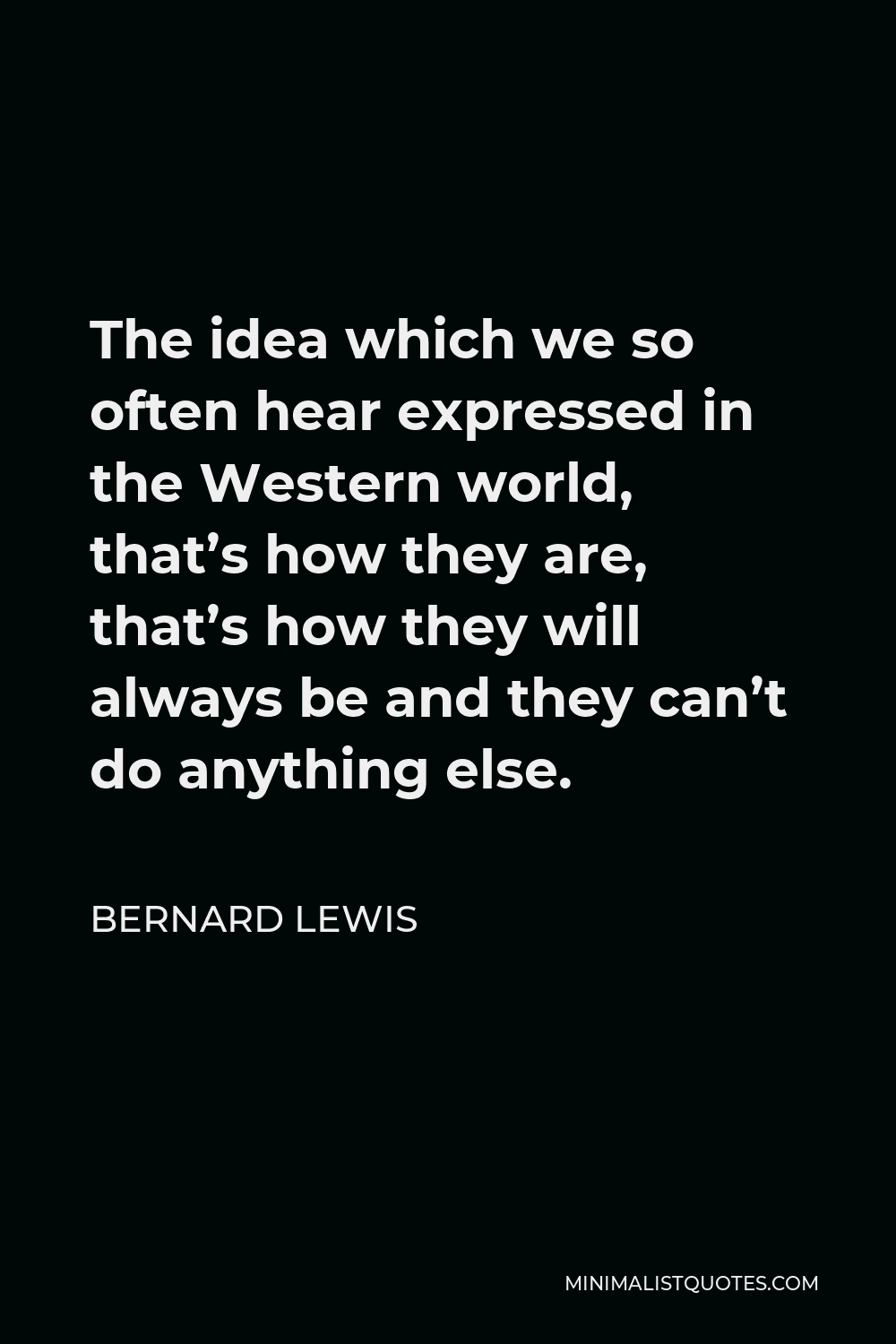
The idea which we so often hear expressed in the Western world, that’s how they are, that’s how they will always be and they can’t do anything else.
BERNARD LEWIS -





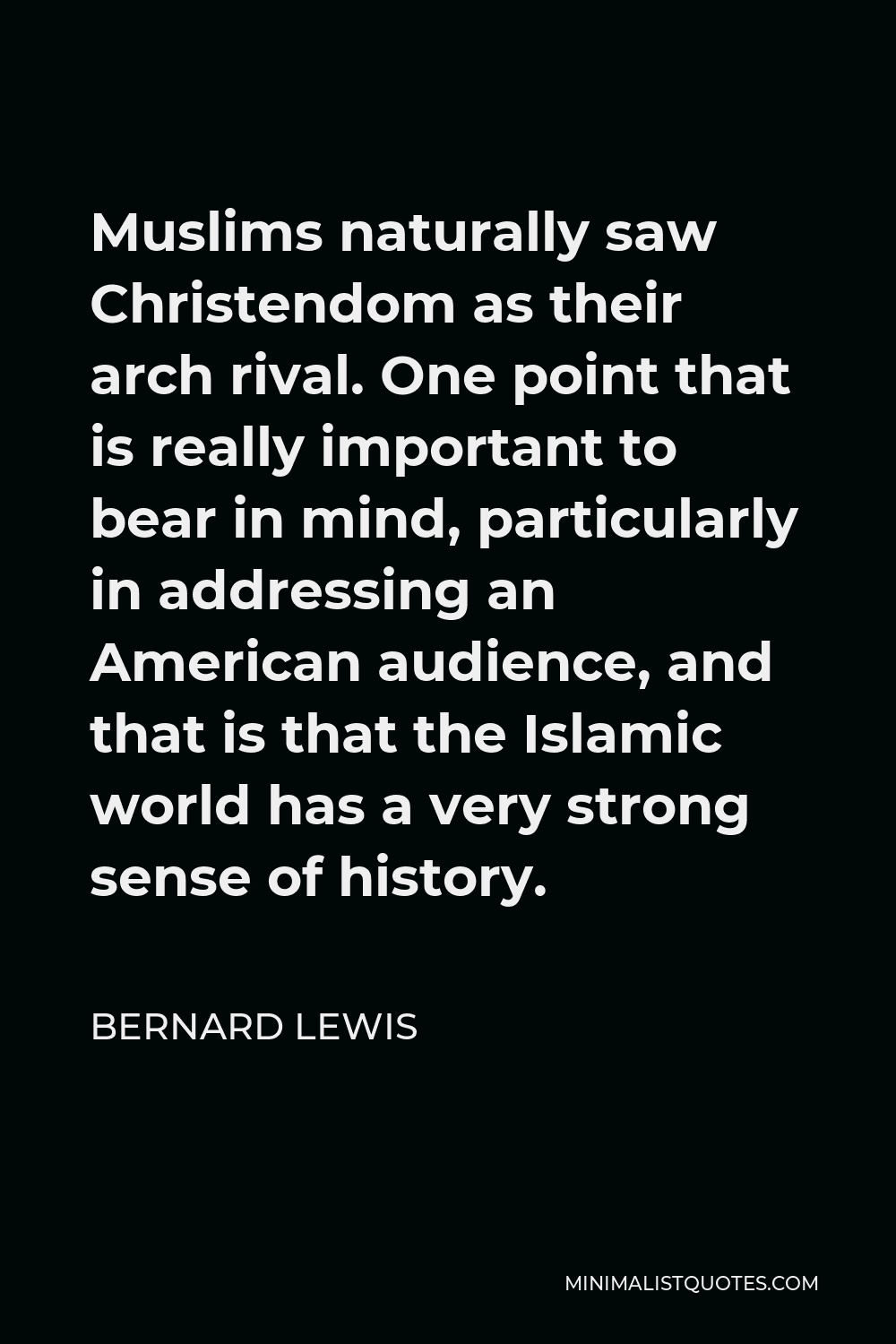
Muslims naturally saw Christendom as their arch rival. One point that is really important to bear in mind, particularly in addressing an American audience, and that is that the Islamic world has a very strong sense of history.
BERNARD LEWIS -





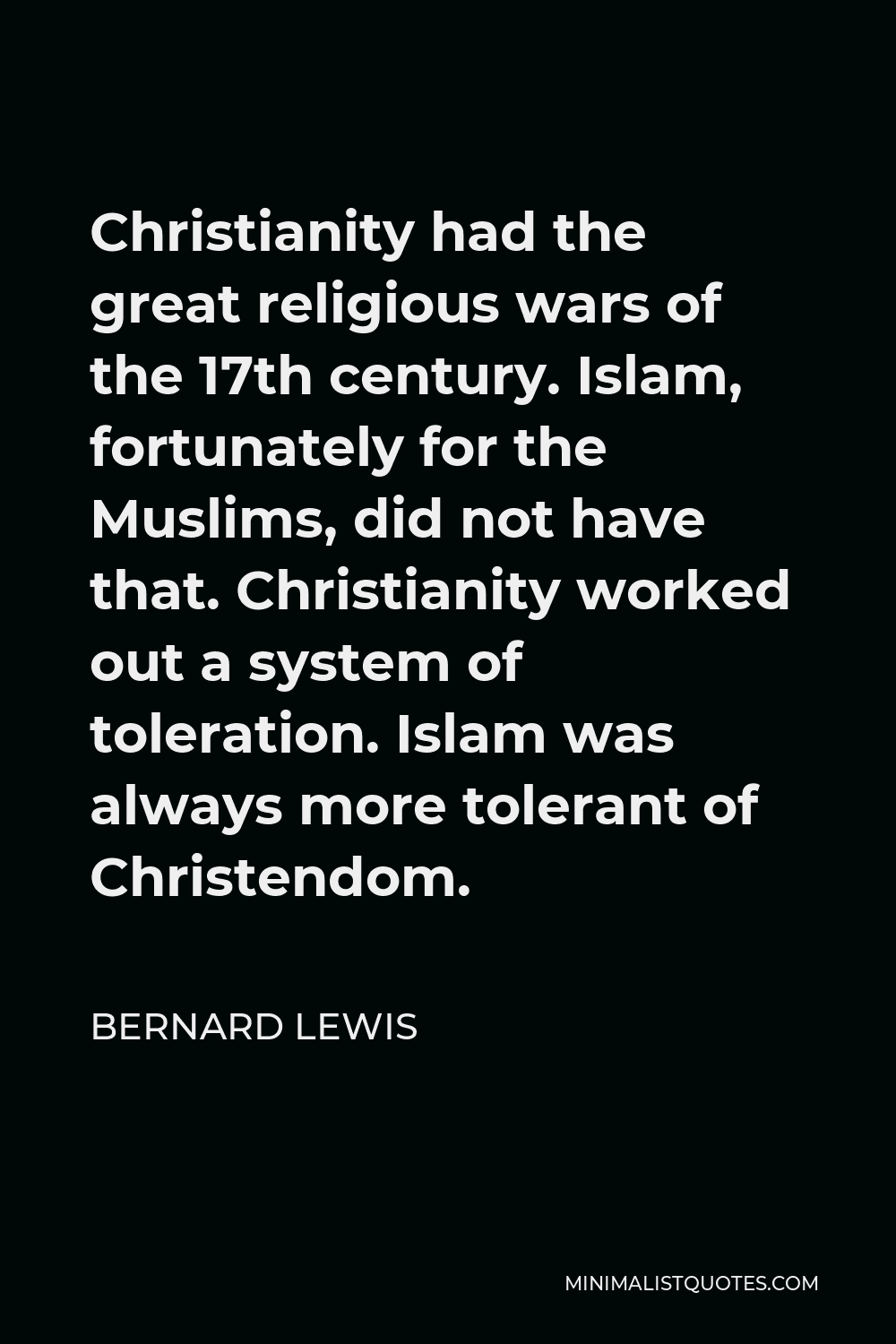
Christianity had the great religious wars of the 17th century. Islam, fortunately for the Muslims, did not have that. Christianity worked out a system of toleration. Islam was always more tolerant of Christendom.
BERNARD LEWIS -





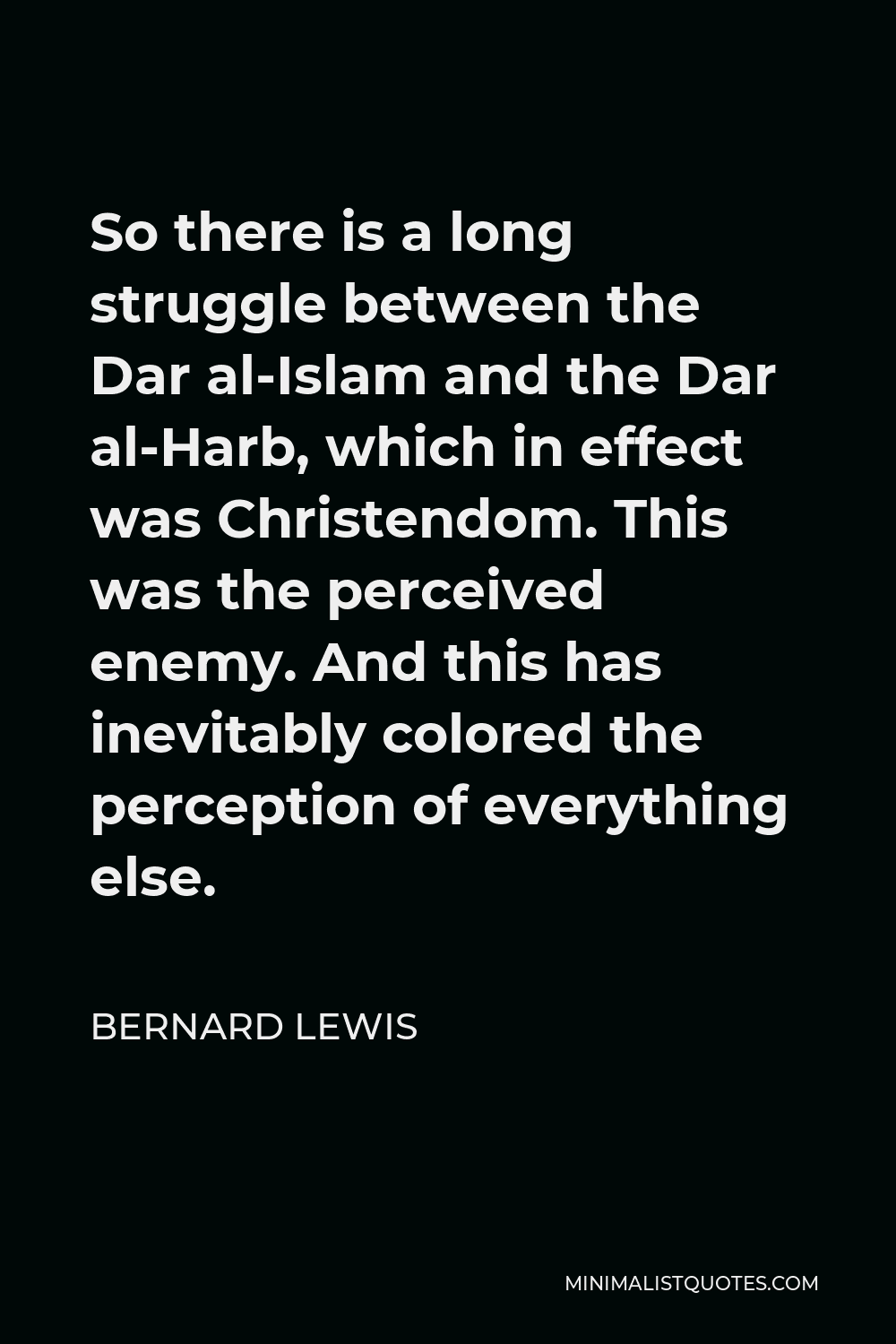
So there is a long struggle between the Dar al-Islam and the Dar al-Harb, which in effect was Christendom. This was the perceived enemy. And this has inevitably colored the perception of everything else.
BERNARD LEWIS -





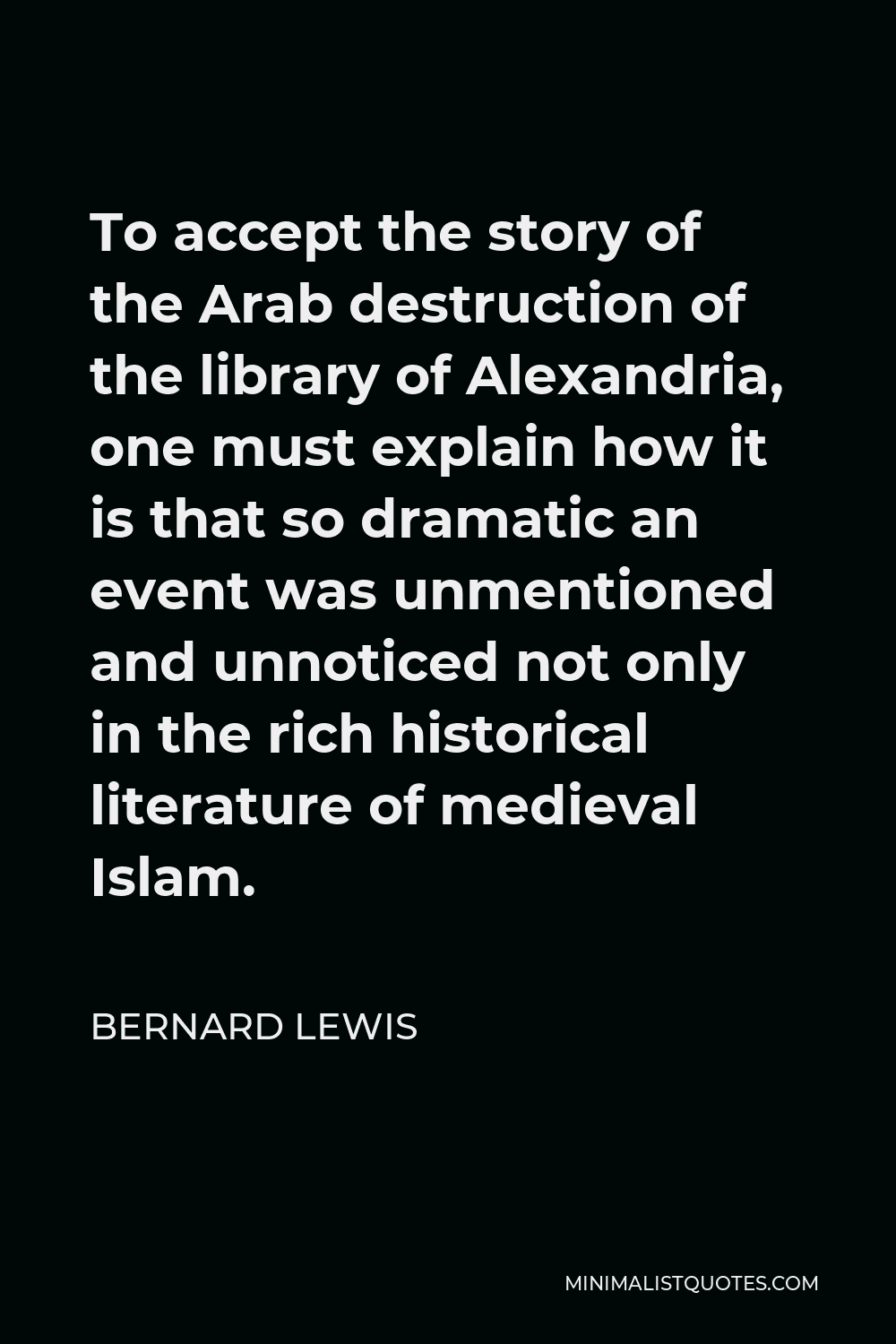
To accept the story of the Arab destruction of the library of Alexandria, one must explain how it is that so dramatic an event was unmentioned and unnoticed not only in the rich historical literature of medieval Islam.
BERNARD LEWIS -





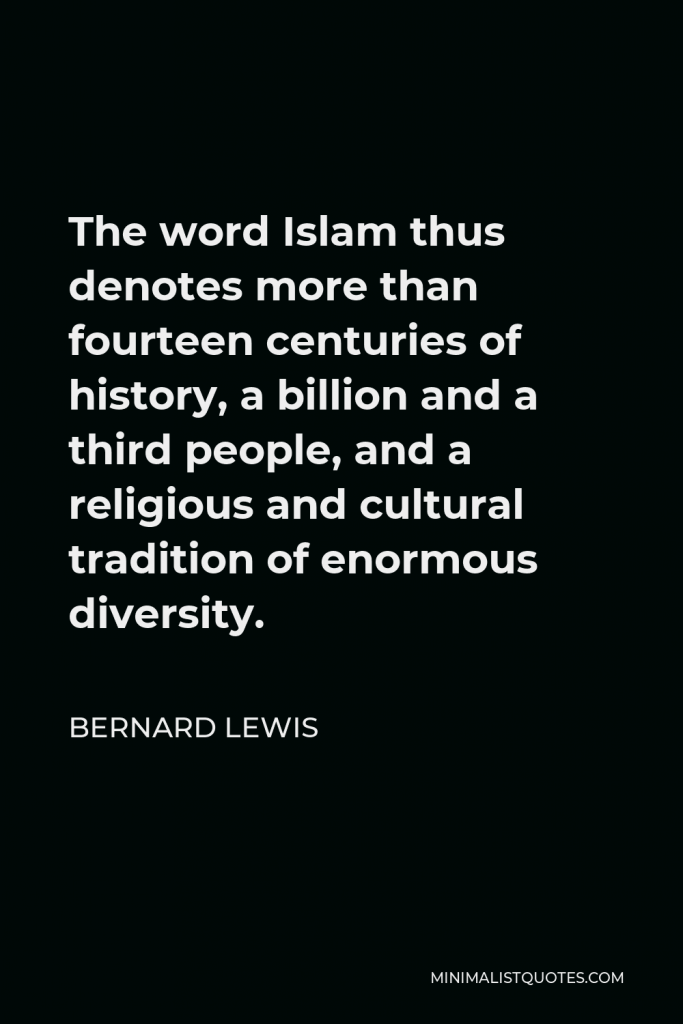

The word Islam thus denotes more than fourteen centuries of history, a billion and a third people, and a religious and cultural tradition of enormous diversity.
BERNARD LEWIS -





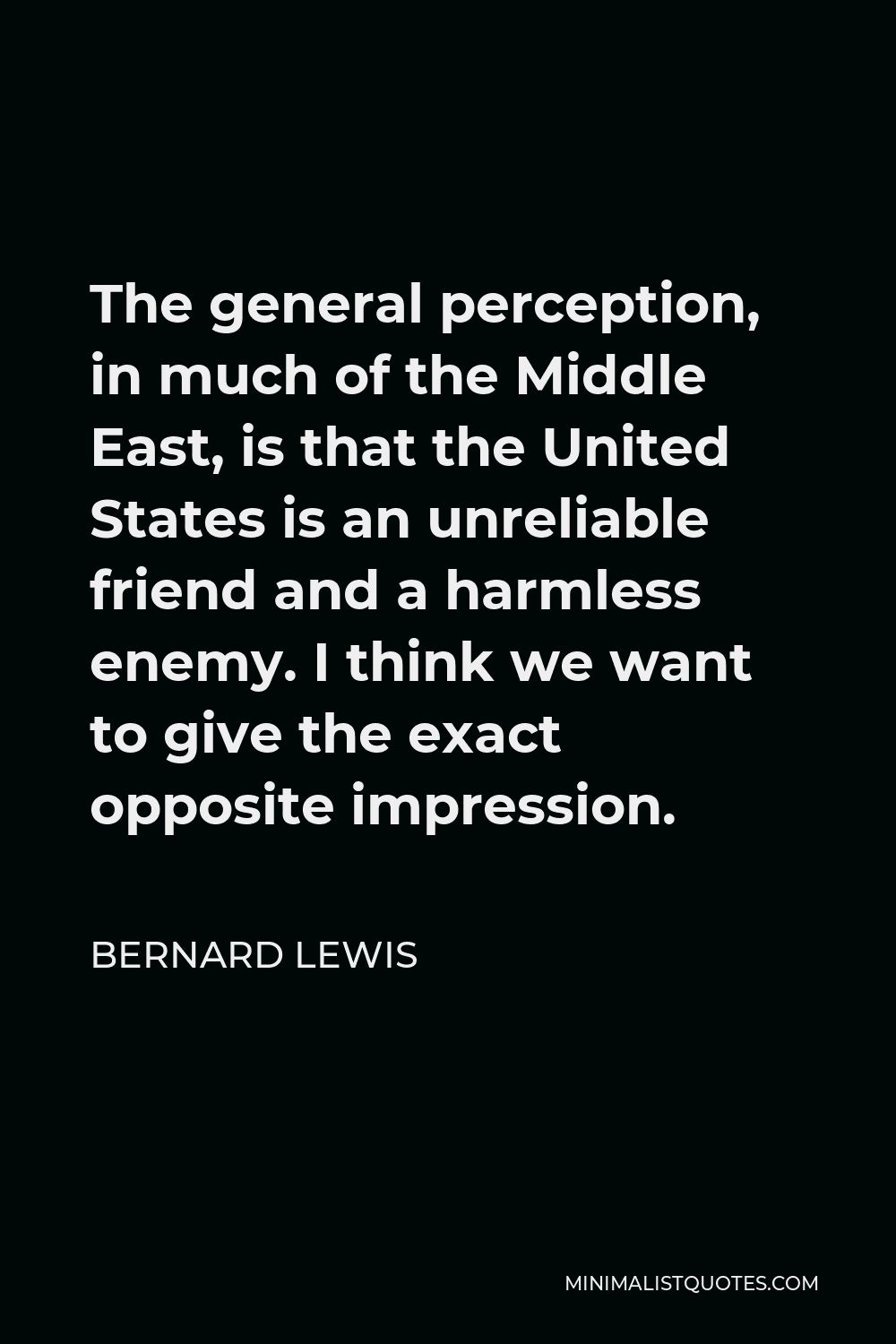
The general perception, in much of the Middle East, is that the United States is an unreliable friend and a harmless enemy. I think we want to give the exact opposite impression.
BERNARD LEWIS -





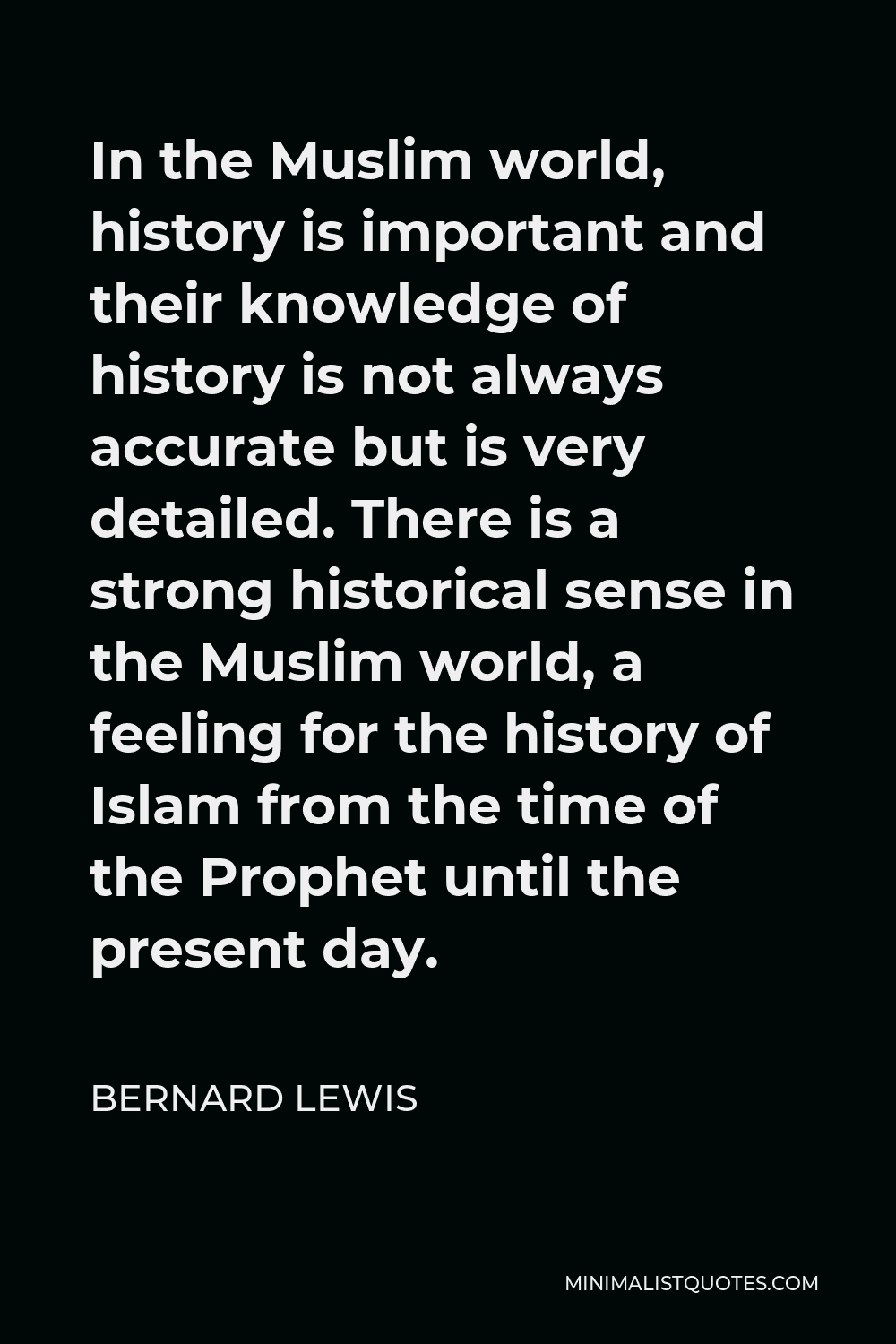
In the Muslim world, history is important and their knowledge of history is not always accurate but is very detailed. There is a strong historical sense in the Muslim world, a feeling for the history of Islam from the time of the Prophet until the present day.
BERNARD LEWIS -





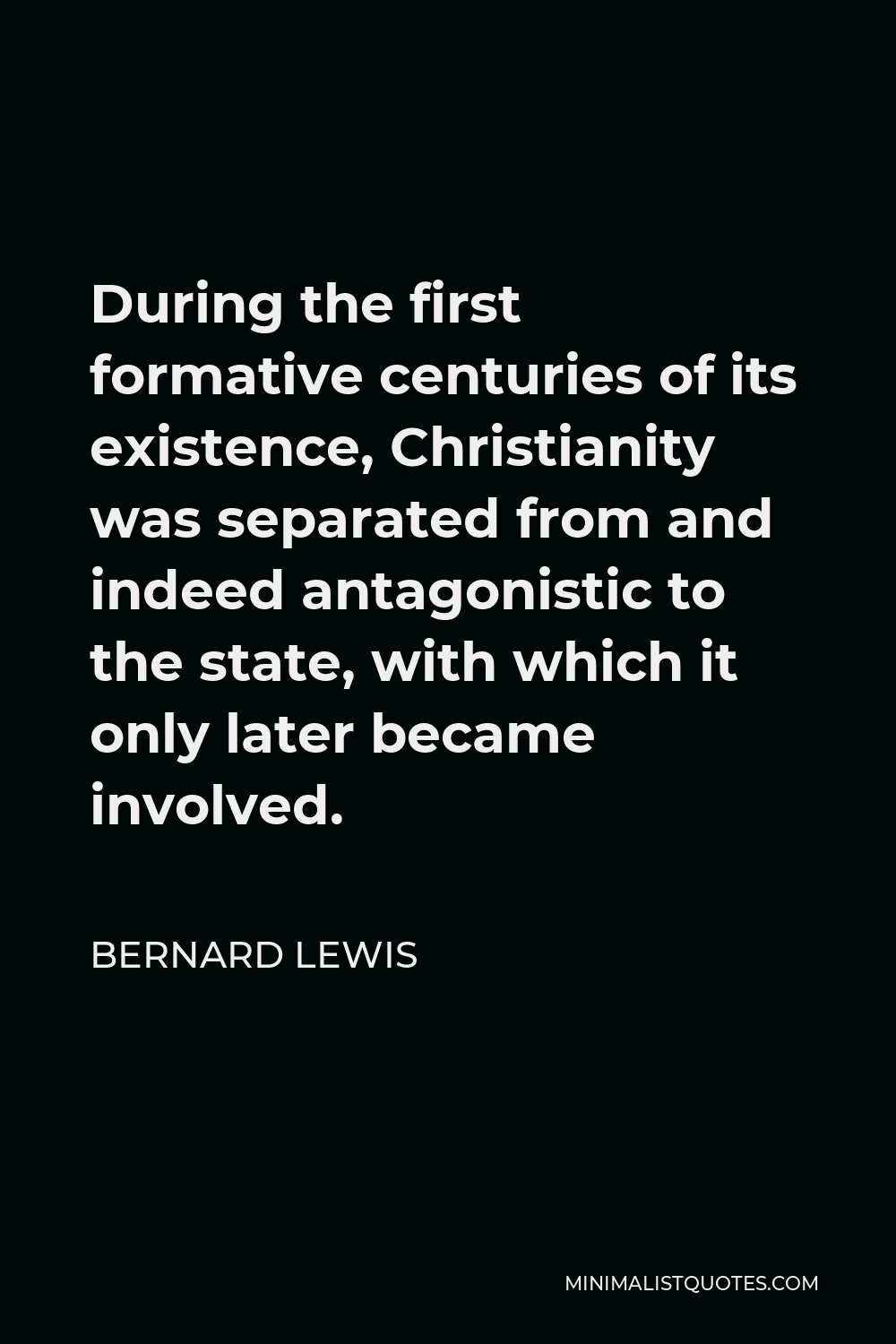
During the first formative centuries of its existence, Christianity was separated from and indeed antagonistic to the state, with which it only later became involved.
BERNARD LEWIS -





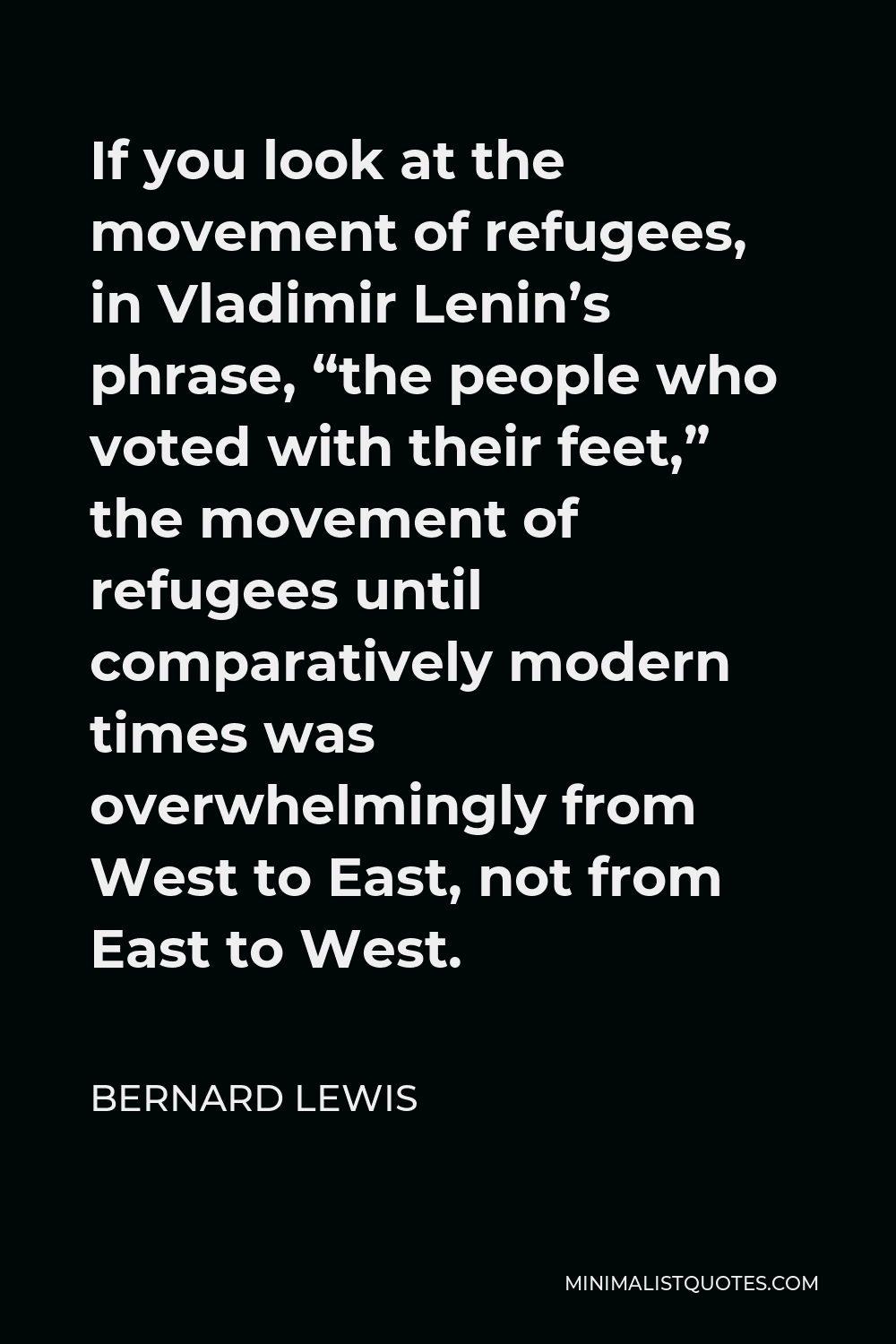
If you look at the movement of refugees, in Vladimir Lenin’s phrase, “the people who voted with their feet,” the movement of refugees until comparatively modern times was overwhelmingly from West to East, not from East to West.
BERNARD LEWIS -





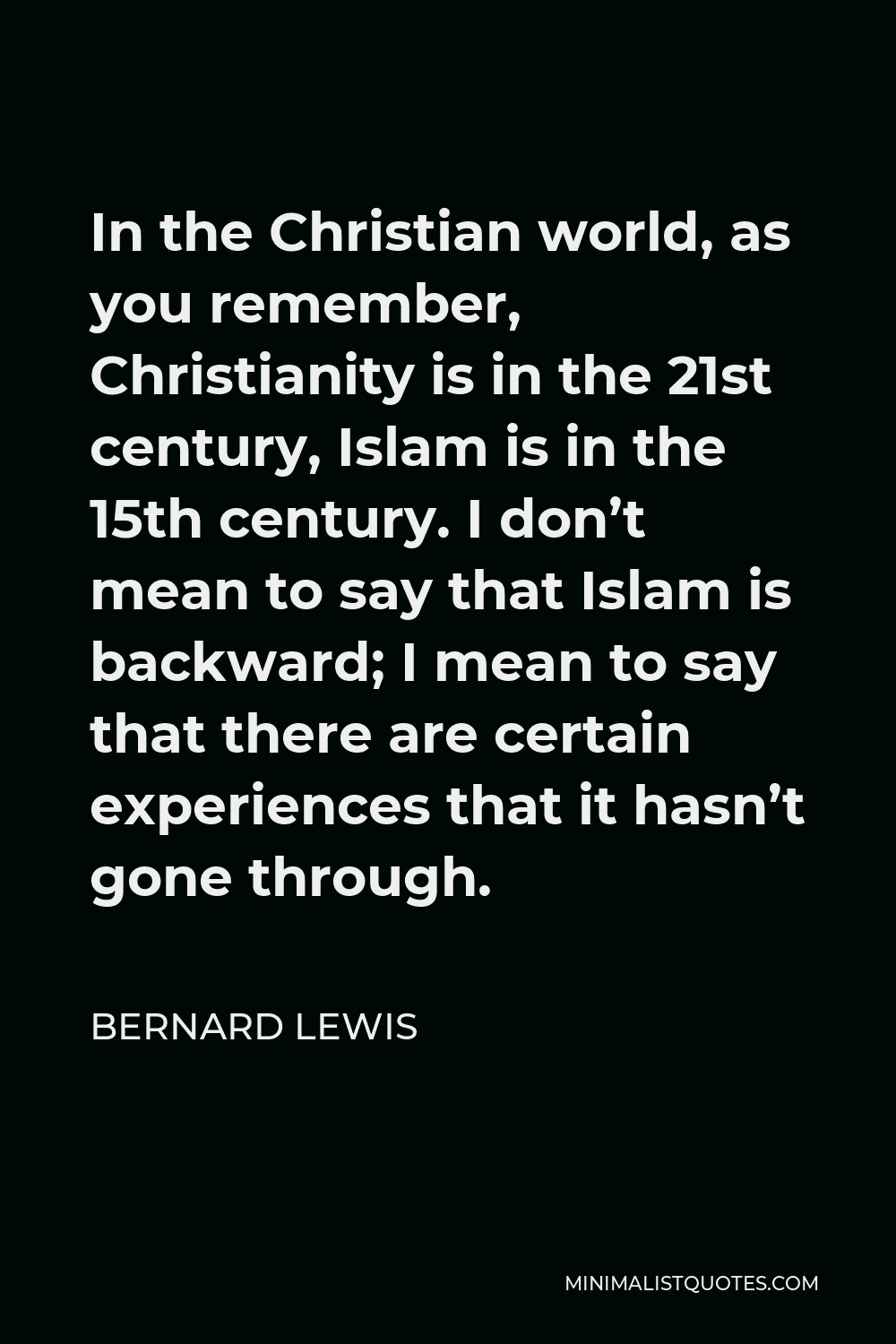
In the Christian world, as you remember, Christianity is in the 21st century, Islam is in the 15th century. I don’t mean to say that Islam is backward; I mean to say that there are certain experiences that it hasn’t gone through.
BERNARD LEWIS -





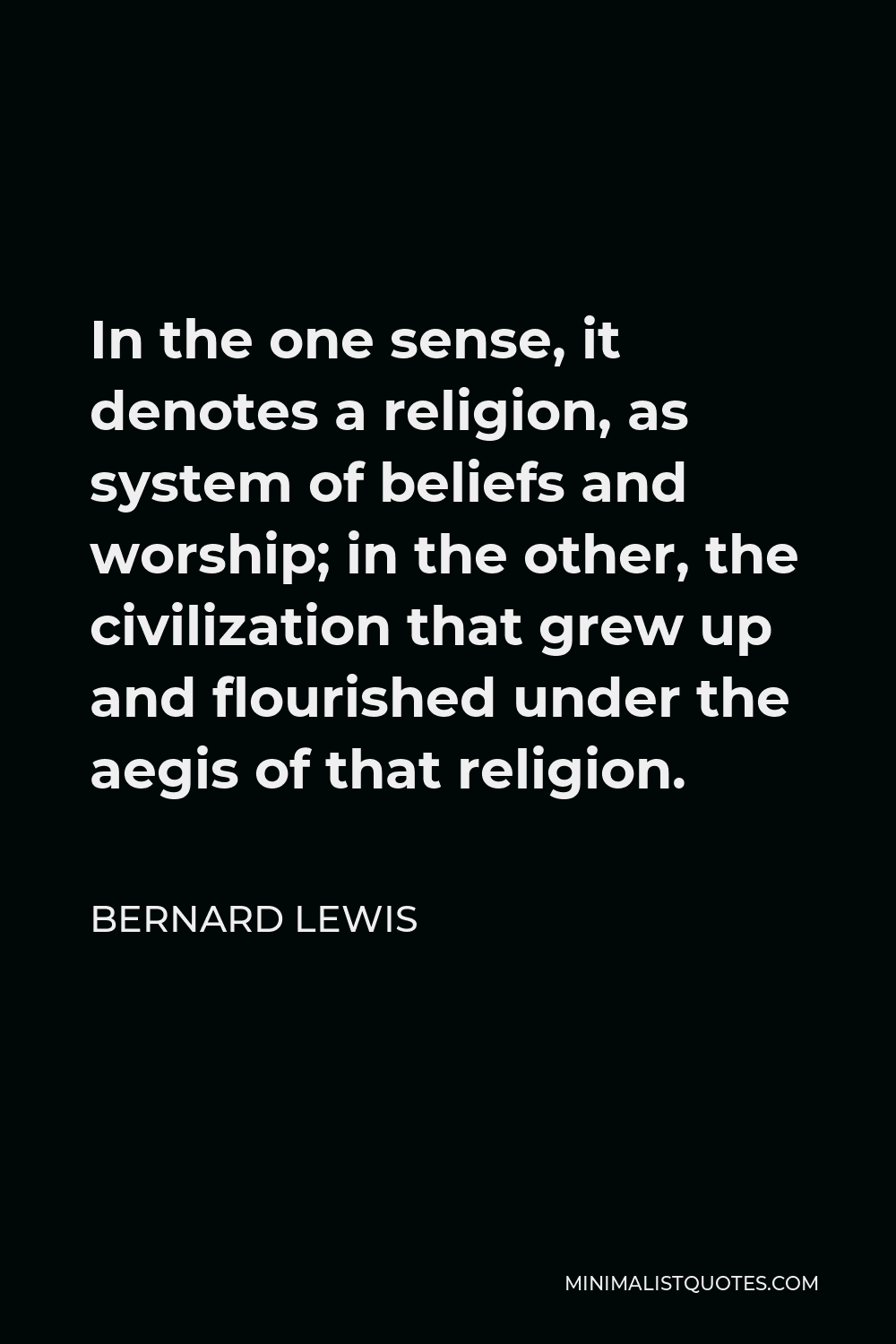
In the one sense, it denotes a religion, as system of beliefs and worship; in the other, the civilization that grew up and flourished under the aegis of that religion.
BERNARD LEWIS -





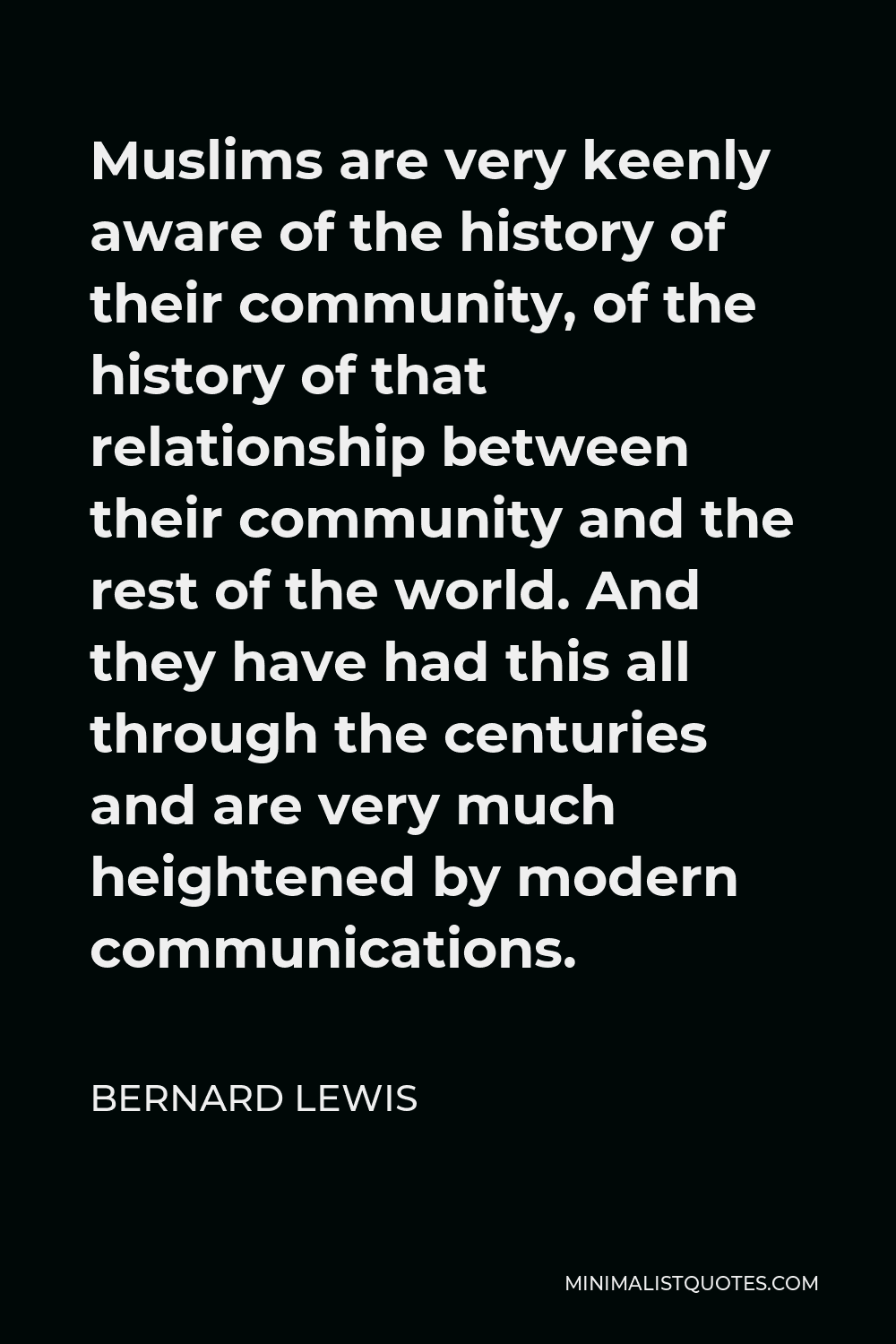
Muslims are very keenly aware of the history of their community, of the history of that relationship between their community and the rest of the world. And they have had this all through the centuries and are very much heightened by modern communications.
BERNARD LEWIS -






If the conflict is about the size of Israel, then long and difficult negotiations can eventually resolve the problem. But if the conflict is about the existence of Israel, then serious negotiation is impossible.
BERNARD LEWIS -





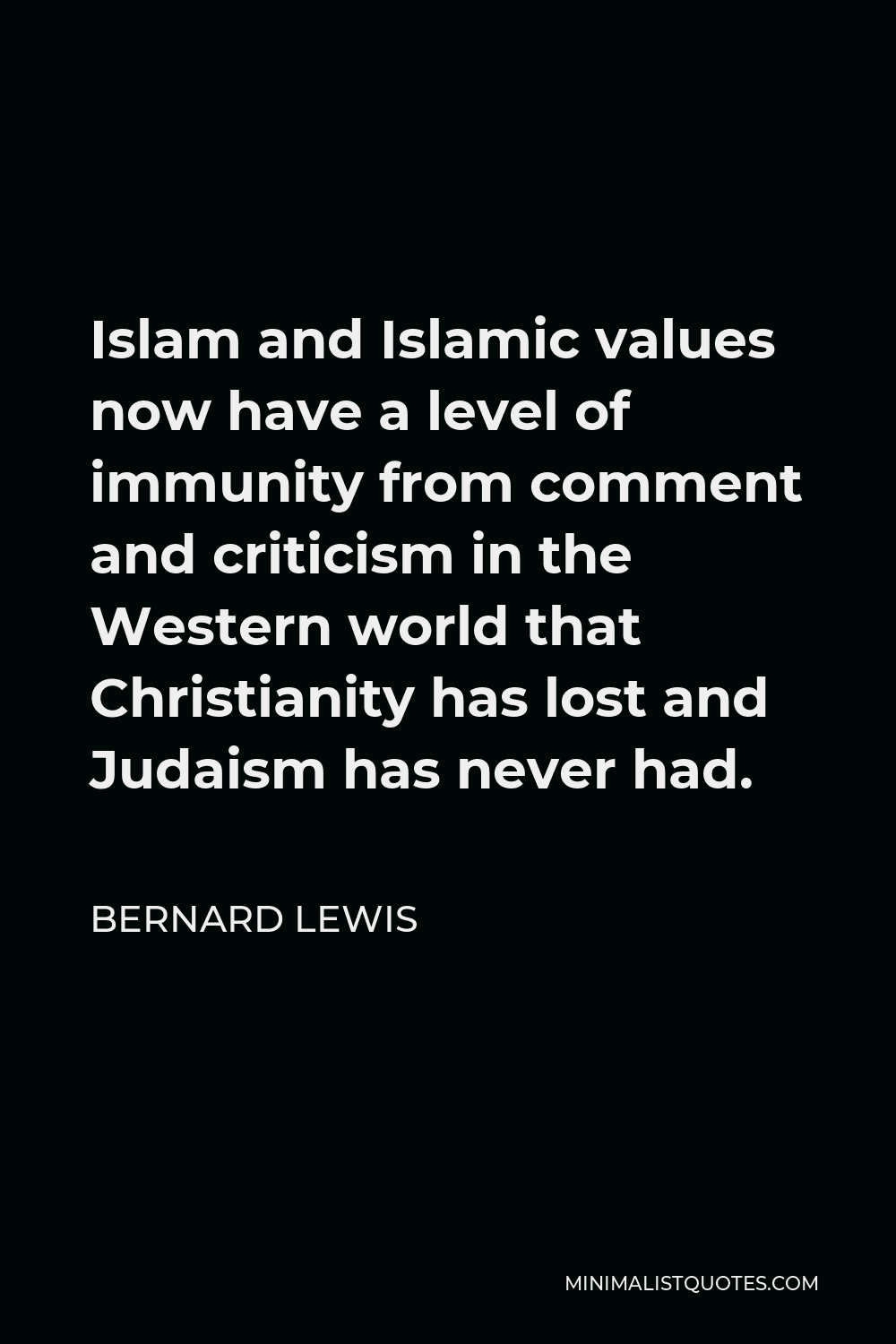
Islam and Islamic values now have a level of immunity from comment and criticism in the Western world that Christianity has lost and Judaism has never had.
BERNARD LEWIS


